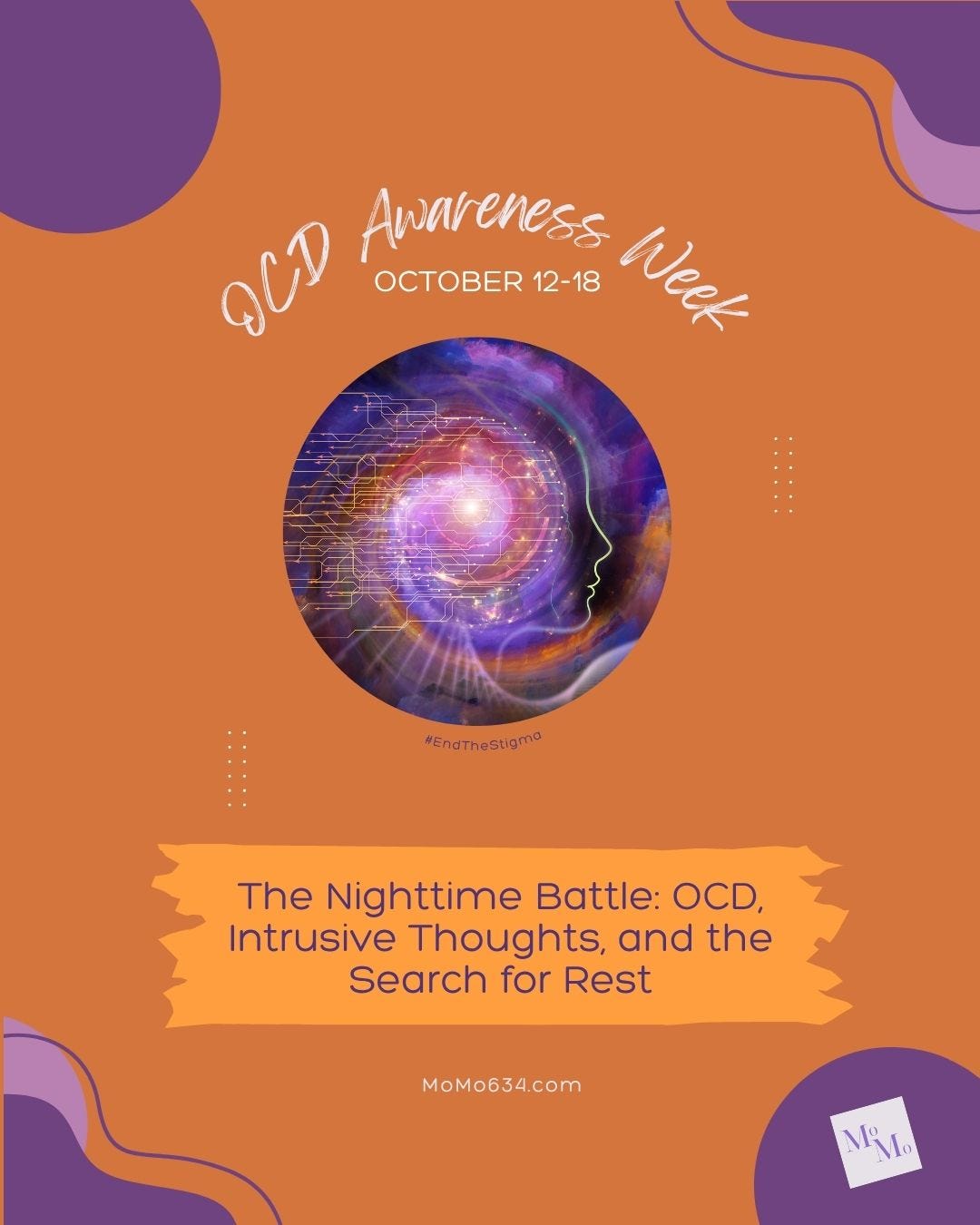The Nighttime Battle: OCD, Intrusive Thoughts, and the Search for Rest
Spotlighting a lesser-known but deeply impactful connection: the overlap between Obsessive-Compulsive Disorder (OCD) and chronic insomnia.

If you are a MoMo634 regular, you know sleep is my crucible. With several 5AM bedtimes as of late, I’m revisiting the issue, and have linked previous episodes on the topic at the end of this article.
Sleep Stats
• Among adults with OCD, 42 percent experience chronic or severe insomnia—nearly four times the rate seen in the general population.
• In children and teens with OCD, sleep disruption is even more common, with 68 percent to 92 percent reporting at least one sleep-related issue.
Why it Matters
Sleep isn’t just rest, it’s regulation and reset. When sleep falters, emotional resilience, impulse control, and cognitive clarity all take a hit. For those with OCD, this can mean:
• Longer to fall asleep (called sleep latency)
• More frequent awakenings
• Delayed sleep phase disorder (circadian rhythm disruptions)
Additionally, it’s not just compulsions keeping people up. Research shows obsessions — those intrusive, looping thoughts — are more strongly linked to insomnia than compulsive behaviors.
Share this with those you know who may be facing similar sleep struggles. #TogetherAgainstOCD
Sources
• Hertenstein, E., et al. (2019). Insomnia in obsessive-compulsive disorder: Prevalence and implications. Journal of Anxiety Disorders, 62, 45–54.
• Paterson, J. L., et al. (2013). Sleep and circadian rhythms in OCD. Sleep Medicine Reviews, 17(6), 465–474.
• Alfano, C. A., et al. (2007). Sleep problems and their relation to cognitive functioning in children with OCD. Child Psychiatry & Human Development, 38(4), 255–272.
More About Sleep:
White Noise (and other types)
Invest in your mental wellness today and receive 20% off for the life of your subscription plan! Subscribe below!



